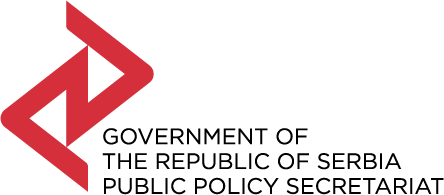Belgrade, 4 April 2024 – The Ministry of Economy of the Republic of Serbia and the Public Policy Secretariat, together with the World Bank and the Delegation of the European Union, presented the 11th consecutive ‚‚SURVEY OF 1000 COMPANIES FOR 2023” at the Chamber of Commerce of Serbia.
The survey conducted in October and November 2023 on a sample of 1047 companies and entrepreneurs by the law firm SOG and the IPSOS agency is an integral part of the “EU for a better business environment – EU4BE” project of the World Bank and the EU Delegation in Serbia, aimed at improving the competitiveness of Serbian businesses and private sector.
“The results of the survey clearly indicate positive changes in business operation, which are primarily related to the stimulation of economic growth. Our concept is good and we will continue with the support of small and medium-sized enterprises and entrepreneurship, as well as with digitalization, contributing to the improvement of business processes and providing additional income for economic entities,” said Slobodan Cvetković, Minister of Economy.
At the presentation of the survey of 1000 companies for 2023, Marko Čadež, President of the Chamber of Commerce and Industry of Serbia pointed out the importance of what the businesses have to say through this survey focusing on SMEs, year after year. “We can talk about very positive developments that have happened in the past year, such as the growth in the number of new companies and entrepreneurs. The increasingly better financial results of the businesses are especially encouraging. Nevertheless, year after year, some things that could be better are still recurring. Entrepreneurs lack the availability of finance, and most micro and small businesses are mostly financed from their own funds, so they still have a problem getting financial products, especially since funds have never been more expensive in the last 15 to 20 years,” Čadež said.
The survey results reveal challenges faced by micro, small and medium enterprises and entrepreneurs (MSMEs), including regulatory burdens, limited access to markets and finance, and other business constraints.
“The World Bank is trying to help Serbia achieve higher growth rates in order to grow into a high-income economy and move closer to the EU at a faster pace,” said Nikola Pontara, the World Bank Country Manager for Serbia. “One of the key aspects of encouraging growth is a stronger business environment, which enables micro, small and medium enterprises to invest, innovate and expand their activities.”
MSMEs are the most numerous business entities in Serbia and play a vital role in the economic development of the country, with a significant contribution to employment, innovation and economic growth.
Plamena Halačeva, Deputy Head of the EU Delegation in Serbia said: “The survey of 1000 companies is a useful presentation of the assessment of small and medium-sized companies about the business environment in Serbia. This year’s findings point to very positive developments, but also to areas where reforms are still needed. The EU will continue to support effective consultation mechanisms between the Serbian public and private sectors in order to identify key reforms of the business environment.”
Some results also indicate the need for further development of the regulatory framework and the elimination of obstacles to the development of e-commerce.
“The Government of the Republic of Serbia is carefully analysing the results of this and similar surveys in an effort to offer regulatory solutions that will give a strong impetus to the development of this market segment, with full legal protection of both service providers and consumers,” said Tomislav Momirović, Minister of Trade in the Government of the Republic of Serbia.
The Minister of Economy, Slobodan Cvetković pointed out that Serbia was an integral part of the region and Europe which was an important parameter when observing our business environment, also noting that practically and conditionally speaking, Serbia was an integral part of the European Union, as well as given the ongoing process of harmonization of our regulations with key EU principles for sustainable economic growth.
NOTE: The sample and questionnaire for the Survey of 1000 companies in Serbia for 2023 are comparable to the previous BEP (Business Enablement USAID 2018-2022) surveys, an annual business survey conducted from 2011 to 2017. The sample was defined using Serbian Business Registers Agency data (2022) in order to reflect the structure of the MSME sector according to economic activities, region, size and legal form of economic entities, and included micro, small and medium-sized enterprises and entrepreneurs (who submit final accounts) with at least three employees.

